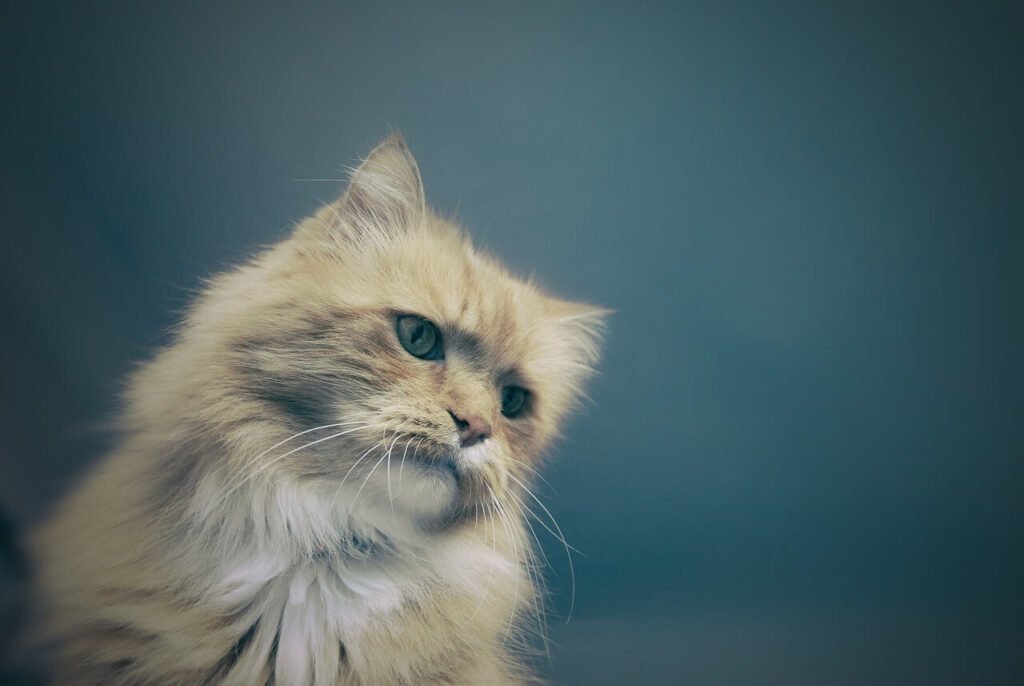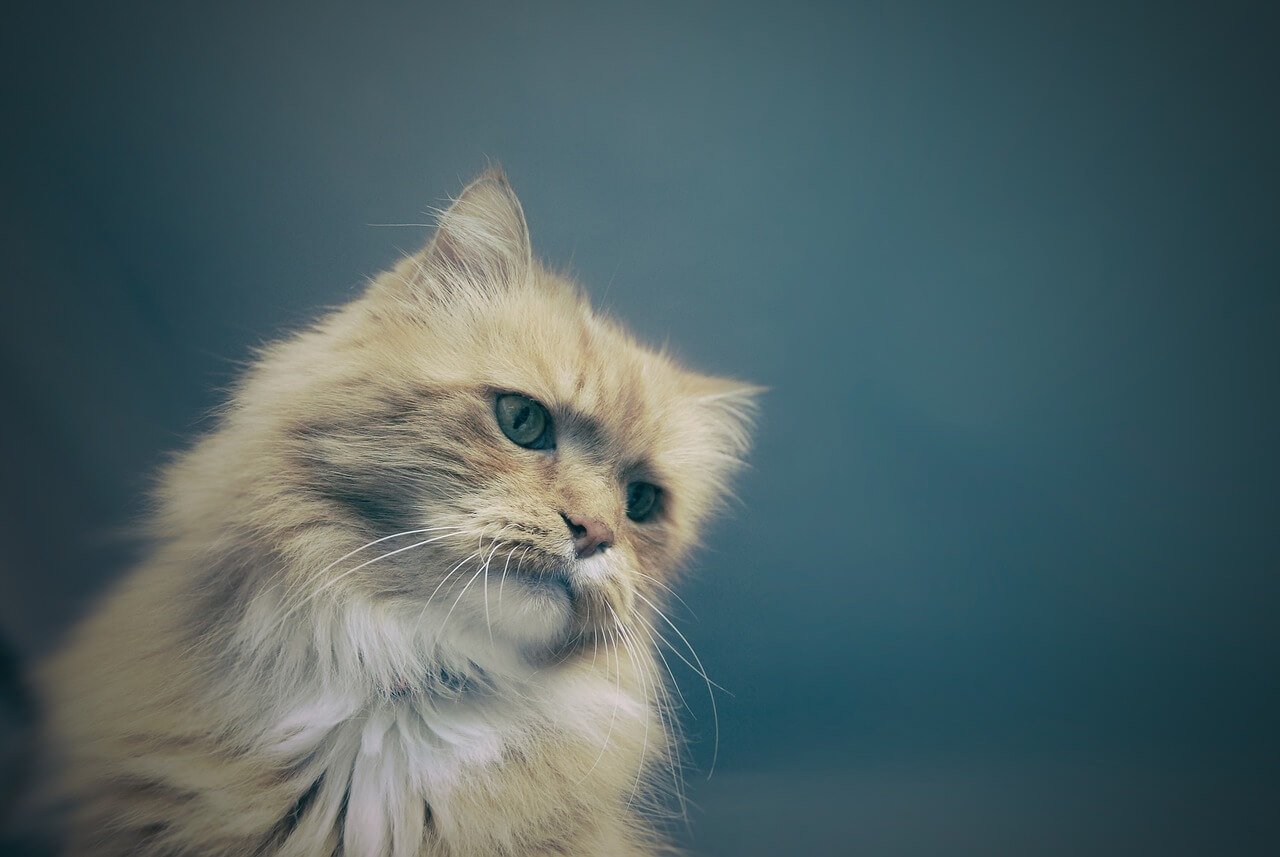Why Does My Cat Eat So Fast? Understanding the Reasons Behind This Behavior
If your cat seems to inhale their food as soon as you put it down, you’re not alone. Many cat owners notice this behavior and wonder if it’s normal or cause for concern. While some cats are naturally fast eaters, others may scarf down their meals due to underlying factors like stress, competition, or even health issues. Understanding why your cat eats so quickly can help you address the root cause and ensure they’re eating in a healthy, balanced way. In this article, we’ll explore the reasons behind rapid eating, potential risks, and practical solutions to slow your cat down during mealtime.
Unpacking the Speed: Why Do Cats Eat So Fast?
Cats eat quickly for a variety of reasons, ranging from instinctual behaviors to environmental factors. Identifying the cause can help you determine whether your cat’s fast eating is harmless or a sign of something more serious. Here are some common explanations:
Survival Instincts from the Wild :
In the wild, cats often eat quickly to avoid losing their prey to competitors or predators.Competition for Food :
Multi-cat households may encourage fast eating if your cat feels they need to compete for resources.Hunger from Inadequate Portions :
If your cat isn’t getting enough food, they may gobble it down out of desperation.Stress or Anxiety :
Cats experiencing stress may eat rapidly as a coping mechanism.Underlying Medical Conditions :
Issues like hyperthyroidism or diabetes can increase appetite and lead to faster eating.
While occasional fast eating might not be harmful, persistent behavior should be monitored closely to rule out any underlying problems.
The Dangers of Speedy Meals: What Happens When Cats Eat Too Quickly
Eating too fast isn’t just messy—it can pose several health risks to your cat. From digestive issues to behavioral concerns, understanding these risks can motivate you to take action. Here’s what to watch out for:
Regurgitation :
Cats who eat too fast often vomit shortly after eating because their stomach can’t process the food quickly enough.Bloating and Discomfort :
Rapid eating can cause bloating, leading to discomfort or pain.Obesity :
Overeating due to fast consumption may contribute to unhealthy weight gain over time.Behavioral Stress :
Fast eating can be a sign of anxiety, which may affect your cat’s overall well-being.Nutritional Imbalances :
Gulping food without chewing properly can hinder digestion and nutrient absorption.
Addressing fast eating early can prevent these issues and promote a healthier lifestyle for your feline friend.
Check this guide 👉Why Is My Cat So Hyper? Best 7 Expert Tips!
Check this guide 👉Why Does My Cat Cuddle With Me? Best 7 Behavior Tips!
Check this guide 👉Why Does My Cat Not Make Biscuits? Best 7 Expert Tips!

Reasons Cats Eat Quickly | Solutions to Slow Them Down |
|---|---|
Survival instincts from the wild | Use puzzle feeders to mimic hunting behavior |
Competition for food | Feed cats separately to reduce rivalry |
Hunger from inadequate portions | Increase portion sizes or feeding frequency |
Stress or anxiety | Create a calm, stress-free eating environment |
Underlying medical conditions | Consult a vet for diagnosis and treatment |
How to Encourage Slower Eating Habits
If your cat’s rapid eating is becoming a problem, there are several strategies you can try to help them slow down. These methods focus on making mealtime more engaging and less stressful. Here are some effective tips:
Use a Puzzle Feeder :
Puzzle feeders require cats to work for their food, slowing down consumption and stimulating their mind.Switch to Smaller, Frequent Meals :
Breaking meals into smaller portions throughout the day can prevent overeating.Invest in a Slow Feeder Bowl :
These bowls have ridges or obstacles that force cats to eat around them, reducing speed.Feed in a Quiet Space :
Providing a calm, distraction-free area can help your cat relax during meals.Hand-Feed Treats Occasionally :
Offering treats by hand encourages slower, more deliberate eating.
Implementing these strategies can transform mealtime into a healthier and more enjoyable experience for your cat.
When to Worry: Red Flags to Watch For
While some fast eating is normal, certain signs may indicate that your cat’s behavior is linked to a deeper issue. Pay attention to these warning signals to ensure your cat stays healthy.
Frequent Vomiting After Meals :
Consistent regurgitation could point to digestive or eating speed issues.Weight Loss Despite Increased Appetite :
This could signal an underlying medical condition like hyperthyroidism.Aggressive Behavior Around Food :
Growling, hissing, or guarding food may indicate stress or territorial tendencies.Lethargy or Lack of Energy :
A sudden change in energy levels alongside fast eating may suggest illness.Changes in Stool Consistency :
Diarrhea or constipation can result from poor digestion caused by rapid eating.
If you notice any of these signs, consult your veterinarian to rule out health problems and get tailored advice.
How Your Home Setup Affects Your Cat’s Eating Speed
Your cat’s environment plays a significant role in how quickly they eat. Stress, competition, or even the placement of their food bowl can encourage rapid eating. Here are some environmental factors to consider and adjust:
Location of the Food Bowl :
Placing the bowl in a high-traffic or noisy area can make your cat feel rushed while eating.Presence of Other Pets :
Dogs or other cats nearby may cause your cat to eat faster out of fear of losing their food.Lack of Routine :
Irregular feeding times can lead to anxiety, prompting your cat to eat quickly when food is available.Type of Food Bowl :
Deep or narrow bowls may make it harder for your cat to eat comfortably, encouraging faster consumption.Accessibility to Water :
If water isn’t readily available near their food, your cat might eat faster to finish and move on.
By optimizing your cat’s dining environment, you can create a calmer atmosphere that encourages slower, healthier eating habits. Small changes can yield big improvements in their mealtime behavior.
Teaching Your Cat to Eat at a Slower Pace
Behavioral training can help your cat unlearn fast eating habits and adopt a more relaxed approach to mealtime. With patience and consistency, you can guide them toward healthier eating patterns. Here are some techniques to try:
Positive Reinforcement :
Reward your cat with praise or treats when they eat slowly to encourage the desired behavior.Portion Control During Training :
Offer smaller amounts of food initially, gradually increasing portions as they learn to slow down.Introduce Scheduled Feeding Times :
Establishing a routine can reduce anxiety and prevent overeating during meals.Use Interactive Toys :
Incorporate toys that dispense food to engage your cat’s hunting instincts and slow their eating.Monitor Progress Closely :
Keep track of improvements and adjust strategies as needed to maintain momentum.
Training takes time, but with consistent effort, your cat can develop better eating habits that benefit their overall health and happiness.
Exploring Creative Ways to Address Rapid Eating
If traditional methods don’t work, there are alternative solutions you can explore to address your cat’s fast eating. These creative approaches focus on making mealtime more engaging and less stressful. Here are some ideas to try:
DIY Slow Feeder :
Create a homemade slow feeder using items like muffin tins or egg cartons to scatter food around.Scatter Feeding :
Spread dry kibble across a clean surface or rug to encourage natural foraging behavior.Timed Automatic Feeders :
Use automatic feeders to dispense small amounts of food at set intervals throughout the day.Freeze Wet Food :
Serve wet food frozen or semi-frozen to slow down consumption and add variety to meals.Rotate Food Types :
Alternate between dry and wet food to keep your cat engaged and prevent monotony.
These alternatives provide fun and practical ways to manage fast eating while catering to your cat’s unique preferences. Experiment with different methods to find what works best for your feline friend.
Frequently Asked Questions About Cats Eating Too Fast
Is it normal for my cat to eat quickly?
Some fast eating is normal, but consistently rapid eating may indicate stress or health issues.
Can fast eating harm my cat?
Yes, it can lead to regurgitation, bloating, obesity, and nutritional imbalances.
How do I know if my cat is stressed about food?
Signs include aggression, hiding, or vocalizing excessively around mealtime.
Will a slow feeder bowl really help?
Yes, slow feeders are designed to reduce eating speed and improve digestion.
Should I separate my cats during meals?
If competition is causing fast eating, feeding them separately can make a big difference.
Final Thoughts: Promoting Healthy Eating Habits for Your Cat
Fast eating might seem like a harmless quirk, but it can have serious implications for your cat’s health and well-being. By understanding the reasons behind this behavior and implementing strategies to slow them down, you can ensure mealtime becomes a positive and nourishing experience. Whether it’s through puzzle feeders, slow feeder bowls, or simply creating a calmer environment, small changes can make a big difference. Remember, every cat is unique, so tailor your approach to suit their personality and needs. With patience and care, you can help your feline friend develop healthier eating habits—and enjoy many happy, healthy meals together.
Do Cats Have Taste Buds? Best 7 Expert Tips! – Discover how cats experience flavors and why their taste is so unique.
Do Dogs Have Taste Buds? Best 7 Expert Tips! – Discover how dogs experience taste, their preferences, and what it means for their diet and health.
Can Cats Taste Sweet? Best 7 Expert Tips! – Discover why cats can’t taste sweetness, how it affects their diet, and tips to keep them healthy and happy.
Can Dogs Taste Sweet? Best 7 Expert Tips! – Discover how dogs perceive sweetness, which foods are safe, and tips to manage their sweet cravings responsibly.





